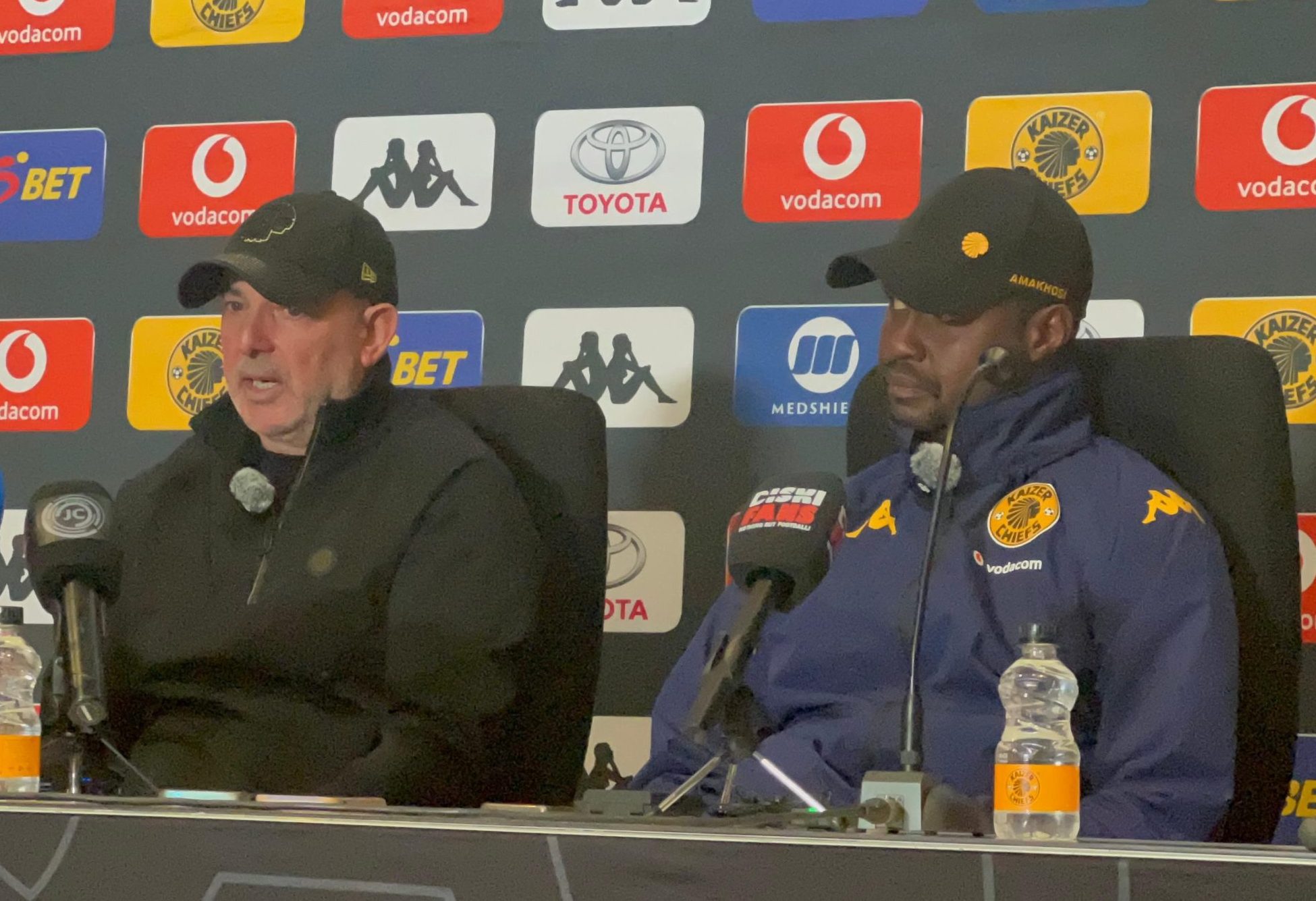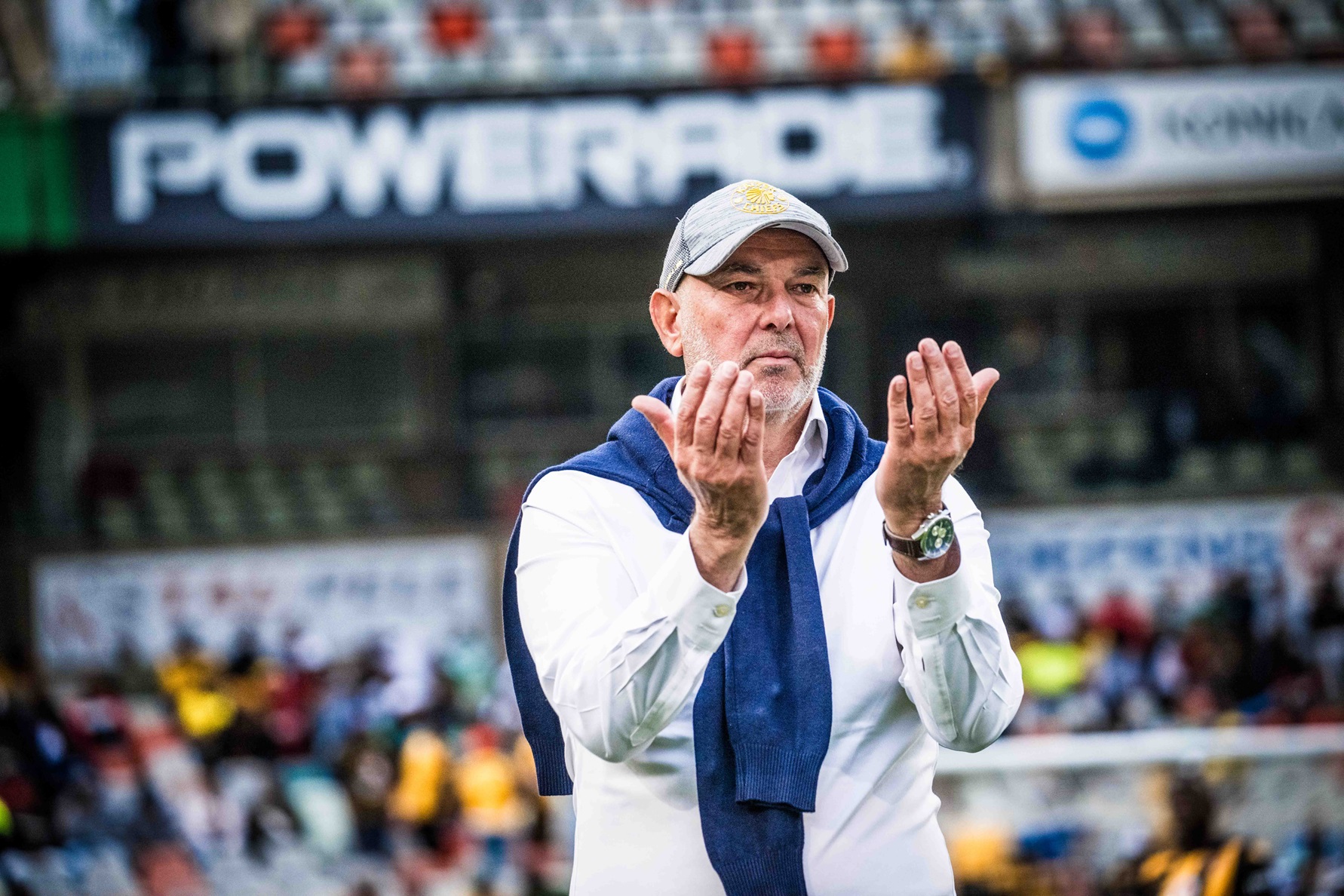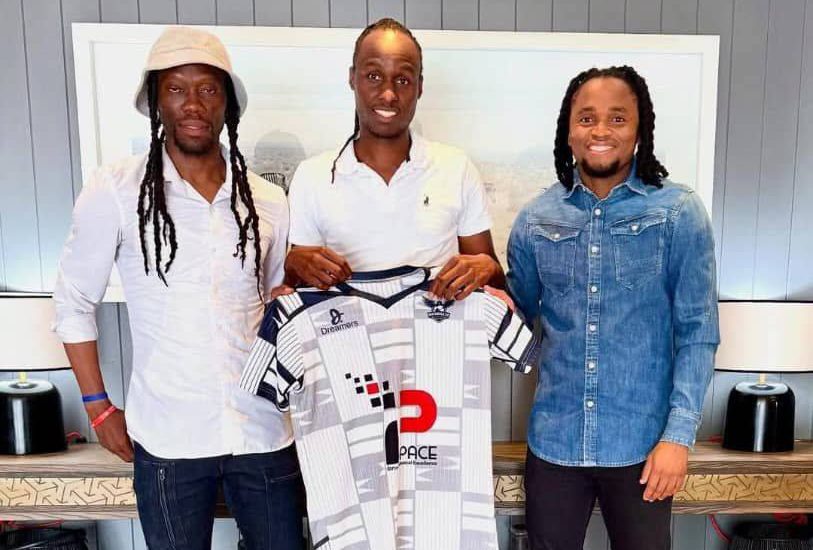Nasreddine Nabi urges calm after Chiefs’ first league defeat

Nasreddine Nabi and Cedric Kaze. Photo credit: Martin T/Pan-Africa Football
Nasreddine Nabi urges calm after Chiefs’ first league defeat
Kaizer Chiefs head coach Nasreddine Nabi has insisted there is no need to panic following his troops’ first league defeat of the season, a 3-1 loss to Sekhukhune United at FNB Stadium in Soweto on Tuesday night.
The result marks the first setback of the 2025/26 campaign for Chiefs, who had previously enjoyed an impressive start with four wins and a draw in their first five Betway Premiership matches, accumulating 13 points.
Nabi believes his side was ultimately responsible for their own downfall against Eric Tinkler’s Sekhukhune, who now sit at the top of the table.
While addressing the media in the post-match press conference, Nabi said: “I feel we made a lot of mistakes that led to goals. Sekhukhune posed us a lot of problems, especially in transition and with long balls that we couldn’t deal with.”
The coach was also critical of his team’s performance in attack. “We were not good enough today, even in our offensive game. We created some opportunities, but it wasn’t good enough to control the game or to be in front.”
NABI BLAMES “AVOIDABLE MISTAKES” FOR CHIEFS DEFEAT
Nabi provided a detailed breakdown of the goals his team conceded. He noted that the first goal resulted from a lapse in communication, with two defenders, Paseka Mako and Aden McCarthy, going for the same ball and leaving an open space. The second goal came from a critical giveaway in a dangerous area, while the third was a simple long ball that was not dealt with properly.
“We acknowledge the intelligence of [Bradley] Grobler, but these are mistakes we believe we could have avoided,” Nabi added.
He is now calling for a strong response from his players as they prepare for their next challenge. Chiefs will travel to Angola to face Kabuscorp in the first leg of the CAF Confederation Cup first preliminary round on Saturday.
“Accidents can happen, but what we need to see is a reaction,” Nabi added. “We need to keep our heads up and be ready for the next game. The continental game is over two legs, it is a knockout [tie], and we need a different approach.”


